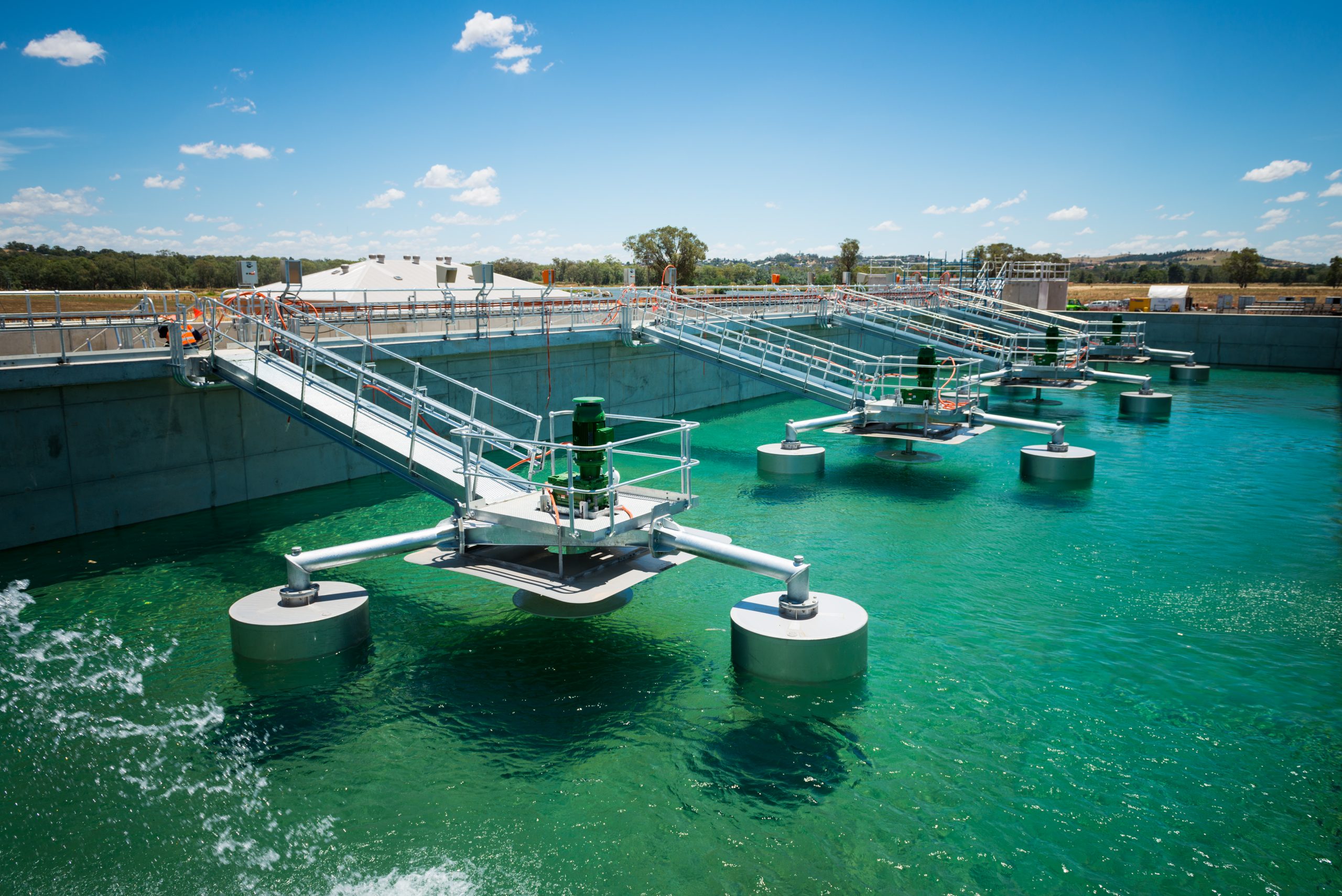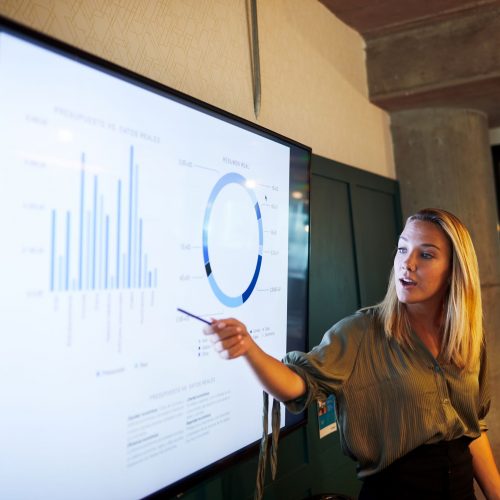Context and policy overview
Since the early years of the 21st century, many countries in the Danube region began significant capital investments in water and wastewater management.[1] However, these infrastructural upgrading programmes were seldom accompanied by a modernisation of the regulatory, organisational and managerial framework.[2]
In this context, the World Bank, in cooperation with the International Association of Water Supply Companies of the Danube River Catchment Areas (IAWD), launched and implemented the Danube Water Program in 2013 to provide capacity and regulatory support to water utility companies in eleven countries.
In the Danube region, utility and resource management are fields in which women have traditionally been underrepresented. The Tirana Water Utility in Albania, for example, had 1,181 employees, of whom 70 per cent were identifying as male.
In order to address this, starting in 2017, the Danube Water Program selected the Tirana Water Utility along with two other utilities to participate in a pilot equal opportunity initiative that sought to assess gender representation at all managerial levels, identify barriers to equitable career progression, and provide solutions to be embedded into the operations of the Utility.
Implementation
First of all, the gender inclusiveness of the Tirana Water Utility was evaluated through a comprehensive gender assessment survey, using the Economic Dividends for Gender Equality (EDGE) methodology.
EDGE focuses on four areas to assess gender equality:[3]
- gender balance at all levels of the organisation
- a framework to ensure equitable career trajectories for both women and men
- an inclusive workplace culture as reflected in employee satisfaction surveys
- equal pay for equal work.
The EDGE assessment found the following:
Gender balance
Women held 52 per cent of junior management positions. However, the numbers progressively decreased when looking across managerial positions, reaching 17 per cent female representation at the top management level. This signals that the Utility was unable to retain female talent at top levels.
Survey results also showed that women were more likely to be hired at the middle management level, while men were more likely to be recruited in junior management roles or operational positions. Therefore, it might have been harder for women to begin their career at the Utility.
Equitable career opportunities
The assessment found that the company used flexible promotion practices, including little to no mobility requirements to progress to management positions, as well as the possibility to take career breaks.
Of those surveyed, 87 per cent of women and 95 per cent of men believed they had equal opportunities to be hired, while 74 per cent of women and 77 per cent of men declared to have been given equal opportunities to be promoted.[4]
In addition, the Tirana Water Utility had some services in place to allow for flexibility in working patterns, including offering childcare support. However, the EDGE survey found that the Utility lacked formalised mechanisms to identify top talent and nurture leadership skills through appropriate training.
Perceptions of an inclusive work culture
Survey results showed that a majority of employees believed that women and men were given equal opportunities to be hired, with a slightly more positive perception among men.
In general, men appeared to be more optimistic in their perception of equal opportunities in the company than women, indicating that a gender gap was present and in need to be bridged.
Equal pay for equal work
The water company had not formulated and implemented effective policies on this issue, as they had not introduced gender assessment pay gaps.
Recommendations
Following the assessment, several recommendations for improvement, as well as three priority actions were provided, including:
- putting in place yearly gender pay gap assessments, covering base salary and bonuses
- designing more flexible work options based on the employees’ needs
- improving transparency regarding career development opportunities and processes
- putting in place targets for the gender composition by management level, accompanied by an action plan on how to achieve it.
Barriers and critical success factors
Among the barriers to success, it is important to note that while the EDGE assessment provided an overview of the practices in place and a roadmap for addressing shortfalls in regulatory practices, it did not include – or disclose – figures related to the uptake of these services.
For example, the size and uptake of childcare benefits offered to employees have not been disclosed. Therefore, the lack of data on service uptake comes in the way of a holistic assessment of the equal opportunity programme’s effectiveness.
Similarly, the EDGE survey, completed by 42 per cent of employees, was not filled out equally by men and women. In fact, while women make up 30 per cent of all employees, they accounted for 77 per cent of all respondents. The low level of engagement on the part of male employees could have come in the way of providing an accurate picture of the perceptions of male employees on the issue of equal opportunities in their workplace.
One of the reasons for the programme’s success at the national level is that Albania already had non-discrimination laws with regards to professional development. While these laws, on average, might not have been applied uniformly across all sectors, this indicates that Tirana might have benefited from greater acceptance and expertise regarding equal opportunity programmes.
In addition, the Tirana Water Utility benefited from participating in the Danube Water Program, which connected utilities in eleven countries and provided an opportunity for knowledge sharing and exchange. The utilities’ experience with gender equality has been shared through multiple workshops.
The Danube Water Program also assisted participant utilities in developing action plans for promoting inclusive human resource management practices.
Results and lessons learned
In the aftermath of the EDGE assessment, the Tirana Water Utility company took several steps to comply with the recommendations and improve its workplace practices to provide equal opportunities.
For example, it established a mentorship programme for both female and male employees as a means to foster career development.[5]
The Utility also committed putting procedures in place to identify and retain top talent, paying close attention to the gendered distribution of opportunities.
What is more, the Danube Water Program as a whole developed a human resources module to foster skills in diversity and inclusion and promote equal opportunities.[6]
The equal opportunity component of the Danube Water Program offers interesting insights for municipal leaders who are seeking to embed gender equality practices into the operations and workplace culture of utilities and other companies, following the example of Tirana, including:
- An initial gender assessment, such as EDGE, is essential to estimate how gender equality is streamlined across the workplace culture and to identify gaps and a subsequent roadmap for improvement.
- While some organisations might already have established gender equality policies, including parental leave and leadership development programmes, it is important to collect usership and gender-disaggregated data to assess how different eligible employees use these services.
- National laws on equal pay should be accompanied by gender pay gap assessments, inclusive of base salaries and bonuses, to ensure that employers are complying with legal requirements.
- Piloting an equal opportunity programme in a relatively restricted domain, such as that of a utility, can be effective to test and further improve the programme.

















